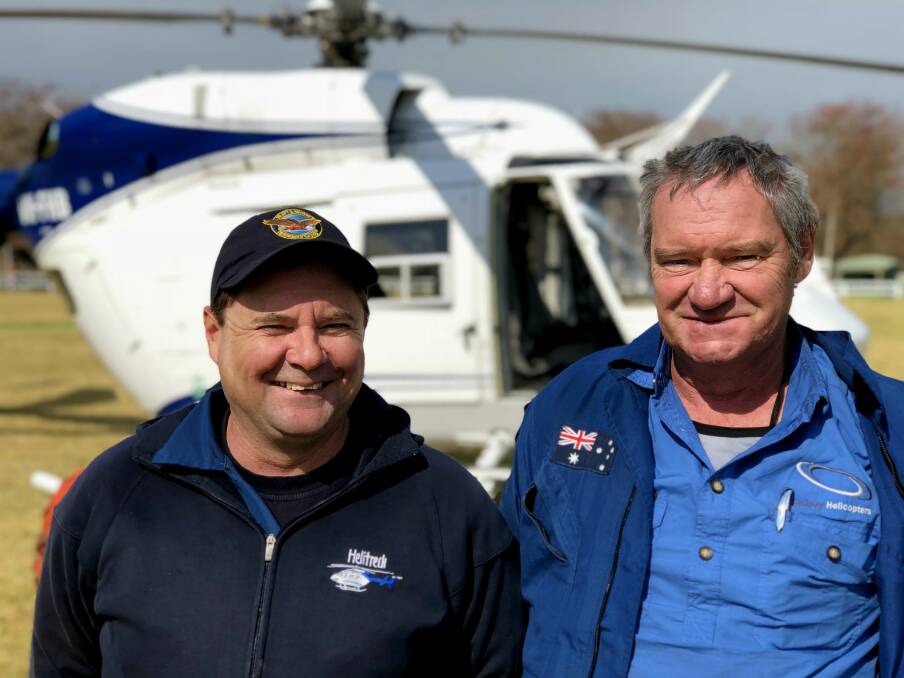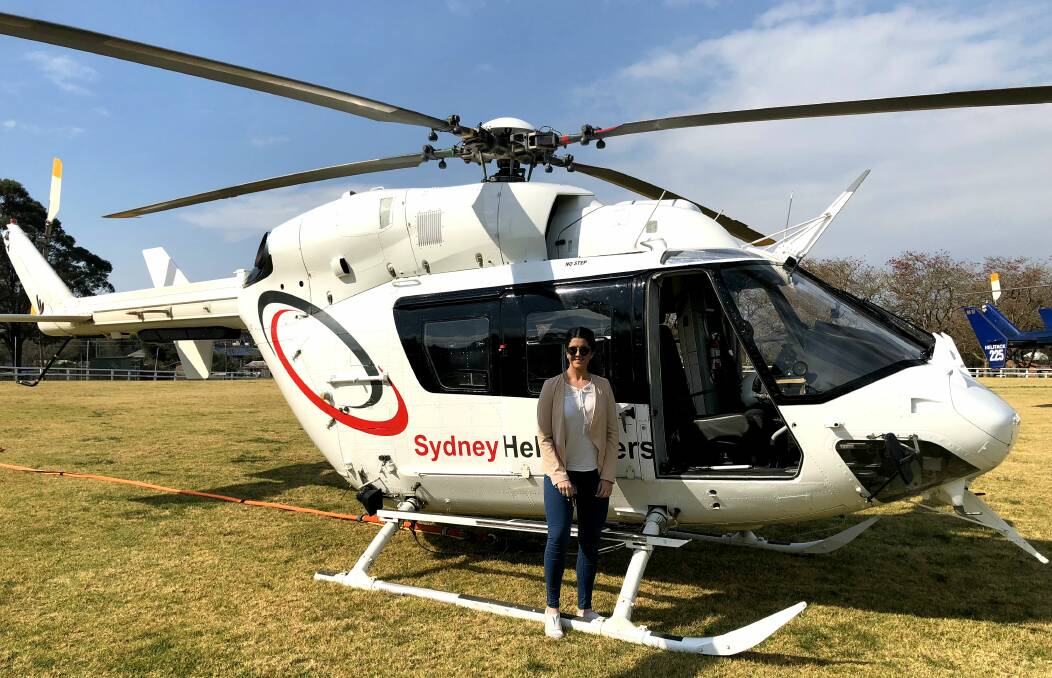
I had been watching aircraft, fixed wing planes and helicopters, dump water on the Kingiman fire for three days.
Subscribe now for unlimited access.
or signup to continue reading
I thought to myself, ‘Wow, these guys are incredibly skilled and really are making a difference in combating this fire’.
So, I headed to their airbase at Milton Showground and decided to tell their stories.
That is when I met Allan Tull. A true hero.
A man who had left his family in New Zealand to come and protect the small communities on South Coast of NSW, Australia - a long way from his homeland.
He had spent two days water bombing the Bomaderry fire before he moved on to fighting the Kingiman fire, west of Ulladulla, on Friday.
This man had 31 years’ experience as a pilot. This man was skilled. He was no newcomer to flying water bombing helicopters.
Allan, or Tully as he was affectionately known in the aviation industry, was jovial as he shared his story while eating a sandwich on a break from flying.
We chatted about how he got into flying and how he came to fly helicopters over firegrounds in Australia.
I got a photo in front of the helicopter he was flying – a Sydney Helicopters aircraft which had been contracted to the Rural Fire Service.

Then, I watched him take off - ready to go drop more buckets of water over the fire, which was still not under control.
Little did I know he was taking off on what would be his last flight. His last hour alive, and he spent it helping to fight a fire in a country he didn’t even call home.
It was not even an hour later that my heart sank after I heard the news a helicopter was down.
My worst fears were confirmed when I returned to the Milton Showground to find all aircraft grounded. Allan’s helicopter was not there. My stomach dropped.
I went to the command post set up at the Milton RFS shed on Croobyar Road and the mood was remarkably subdued.
It wasn’t until I had five minutes to myself that the reality of what had happened kicked in and I became emotional.
I’ve spent five years reporting on the stories of the South Coast. I’ve read through graphic details of a murder, I’ve been on the scene of fatal accidents.
But I’ve never been as connected to a story as I am to the story of Allan Tull.
I now held the last ever photo taken of Allan, and I had some of his last words recorded in an interview.
“I have been doing fires here since 1997,” he told me.
Describing the conditions experienced in the air in previous days, Allan said, “It’s been pretty windy.”
“But, you know when to quit,” he said.
As this tragedy unfolded, I saw another side of the emergency service community. A supportive group of people doing all they can for strangers and each other.
These tragic events really do bring out the best in our community.


